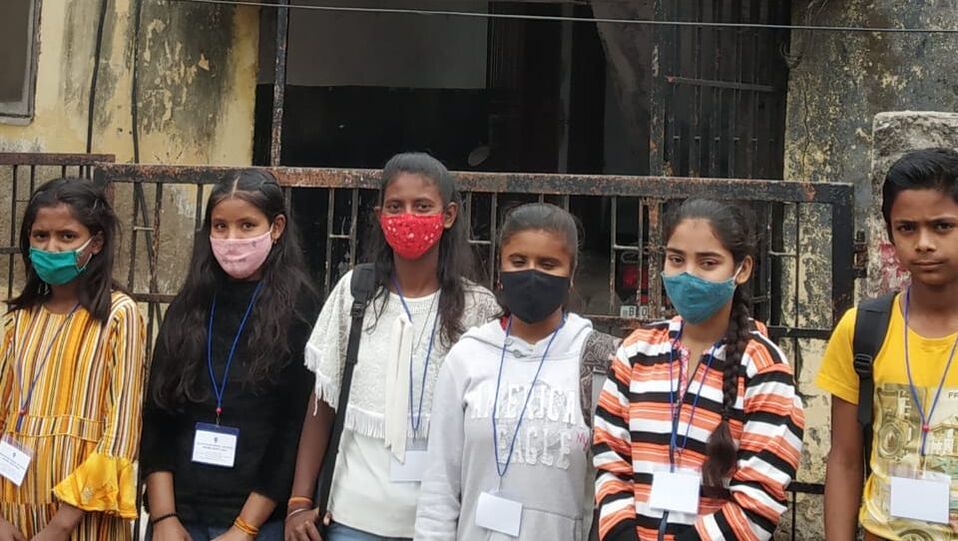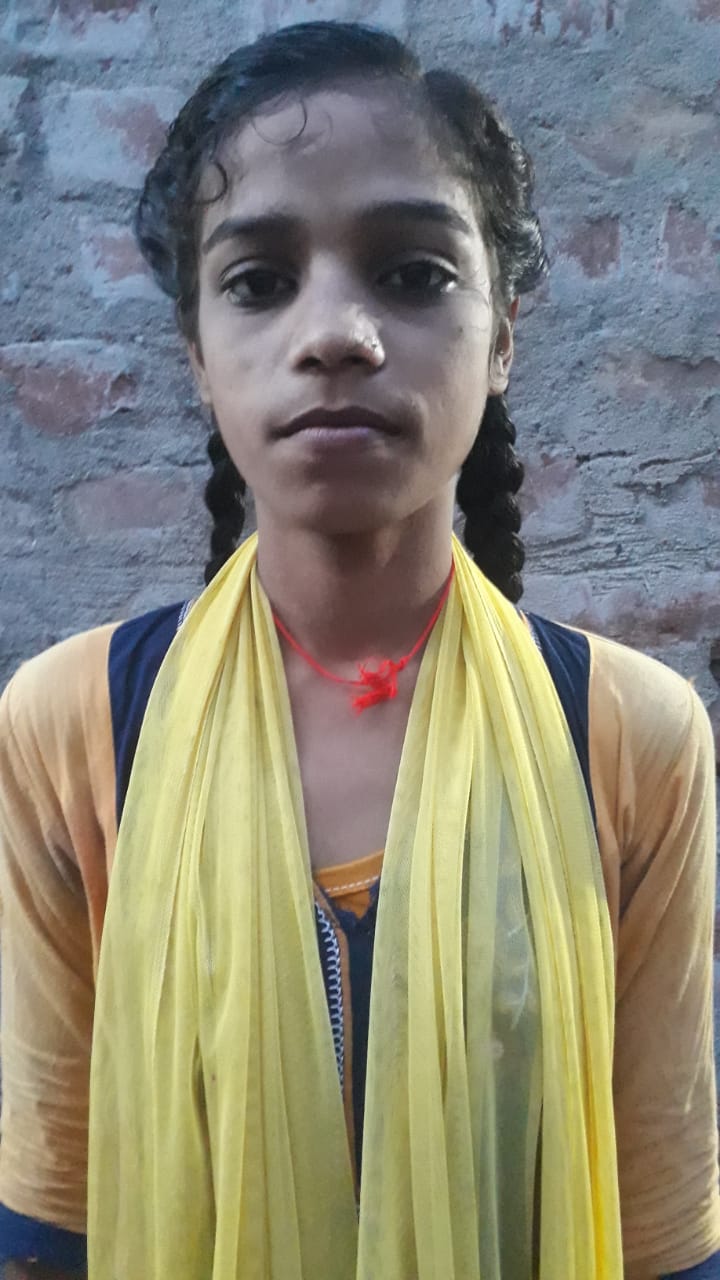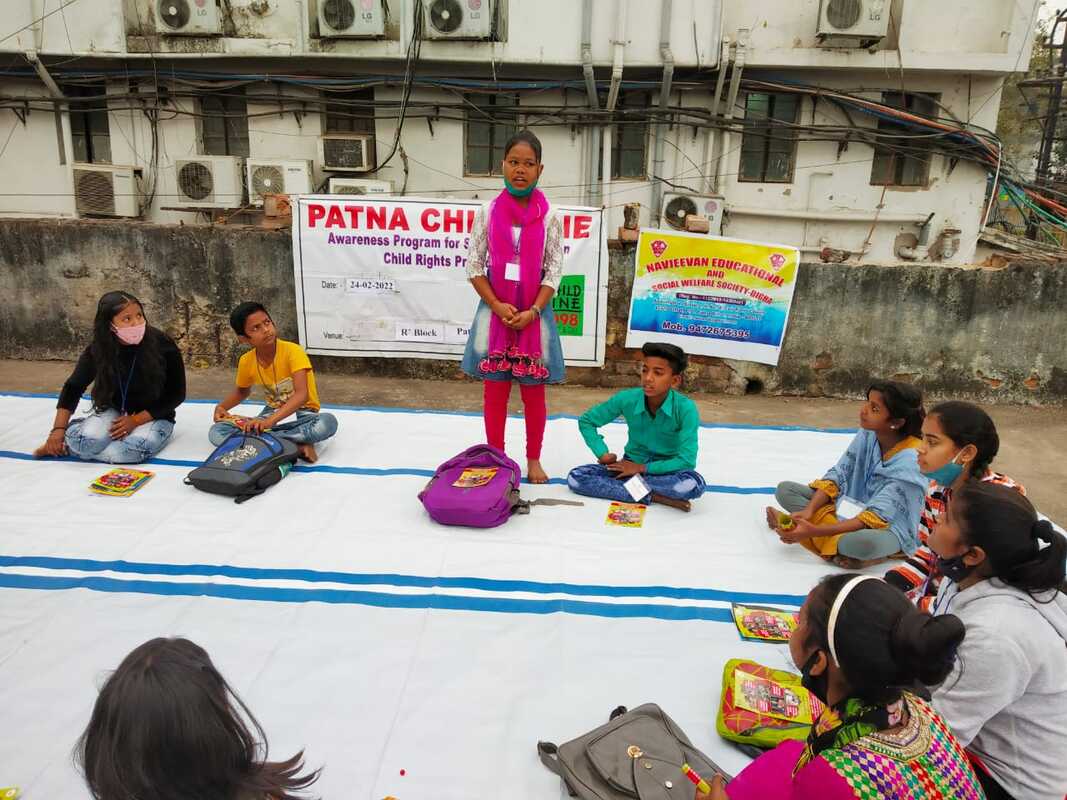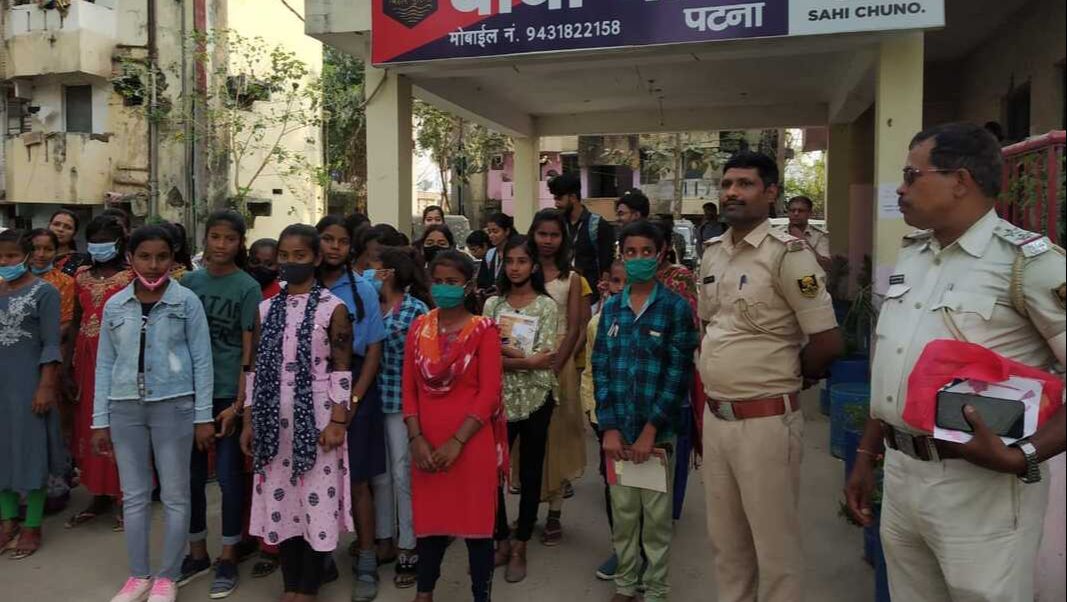|
Our programme in India helps to break the cycle of discrimination for Dalit children and bring about change. Read about how the ‘Child Parliaments’ have been working on building relationships with the local police and improving the local Childline service. A vital part of all our programmes is ensuring that children can participate and that their voices are heard. We resource children to express themselves and have a voice and take steps to ensure they understand their rights and can claim them for themselves. In India, children from our Learning Centres form twelve 'Child Parliaments'. These consist of ten elected ‘ministers’ who represent their friends, learn about their rights and peacefully campaign in their communities. Child Parliaments have a huge, positive impact in their communities through a wide variety of campaigns, and the children who take part benefit hugely.
The Child Parliament training made me realise the importance of education and going to school regularly. I learnt to be clean and tidy, and I also started keeping my home clean. I started to take care of my sisters too, and I take them with me now to the learning centre to study. Our Child Parliament conducted a Hygiene and Sanitation campaign in our community. All of us taught others about the best way to wash your hands, which is especially good at this time of COVID 19. Parents and community members appreciated how we were doing such useful social work. We also got training on filing various forms to the local council office, and I was able to use my training to help many children get their caste certificates. I am thankful for the Child Parliament programmes, which build up our confidence and leadership skills". Child Parliaments take the lead on many aspects of the programme, creating events, identifying needs in their local areas and educating their friends. In March, Child Parliament representatives visited the Childline Office in Patna and were able to share some of the problems that children encounter with the service; like unattended phone lines and late responses to calls. They made some follow up plans with Childline to tackle these issues. Earlier this year, 80 Child Parliament members took part in a training course on the ‘Police System in Bihar State’ to help them understand the various ranks and responsibilities within the police system. The training focused on how the police aim to ensure child protection, but the children shared that the prominent feeling they carry about the police force is ‘fear’, explaining that they only hear negative things about the police and believe they are cruel and corrupt. As a result, the children requested that we arrange some opportunities for them to interact with personnel at the local police stations to begin to dispel some of their fears, develop more positive perceptions and build relationships with the police so they can work together. So, children recently met with police officers and put forward their own plans around child protection. They collected phone numbers of the relevant officers and planned to follow up on their ideas. Further visits were arranged, and many children who usually kept away from the police force enthusiastically went along to the local stations and interacted with police officials. Some of the child representatives presented their issues and ideas to the police officers and requested immediate action on issues such as alcoholism, drug addiction and local disputes.
Child Parliaments play a crucial role in making our programme in India so effective and enable the children themselves to bring about change in their communities. Support usComments are closed.
|
RECEIVE OUR EMAILSBlog Categories
All
Archives
July 2024
|
|
JOIN US ON SOCIAL MEDIA
|
Annual Report | Contact Us | Jobs | Media Centre | Resources | Shop
Accessibility & Policies: Accessibility | Equity, Diversity & Inclusion Policy | Complaints| Privacy Policy | Safeguarding
Accessibility & Policies: Accessibility | Equity, Diversity & Inclusion Policy | Complaints| Privacy Policy | Safeguarding
Children on the Edge, 5 The Victoria, 25 St Pancras, Chichester, West Sussex, PO19 7LT, UK | 01243 538530 | [email protected]






 Give monthly
Give monthly Fundraise for us
Fundraise for us RSS Feed
RSS Feed
